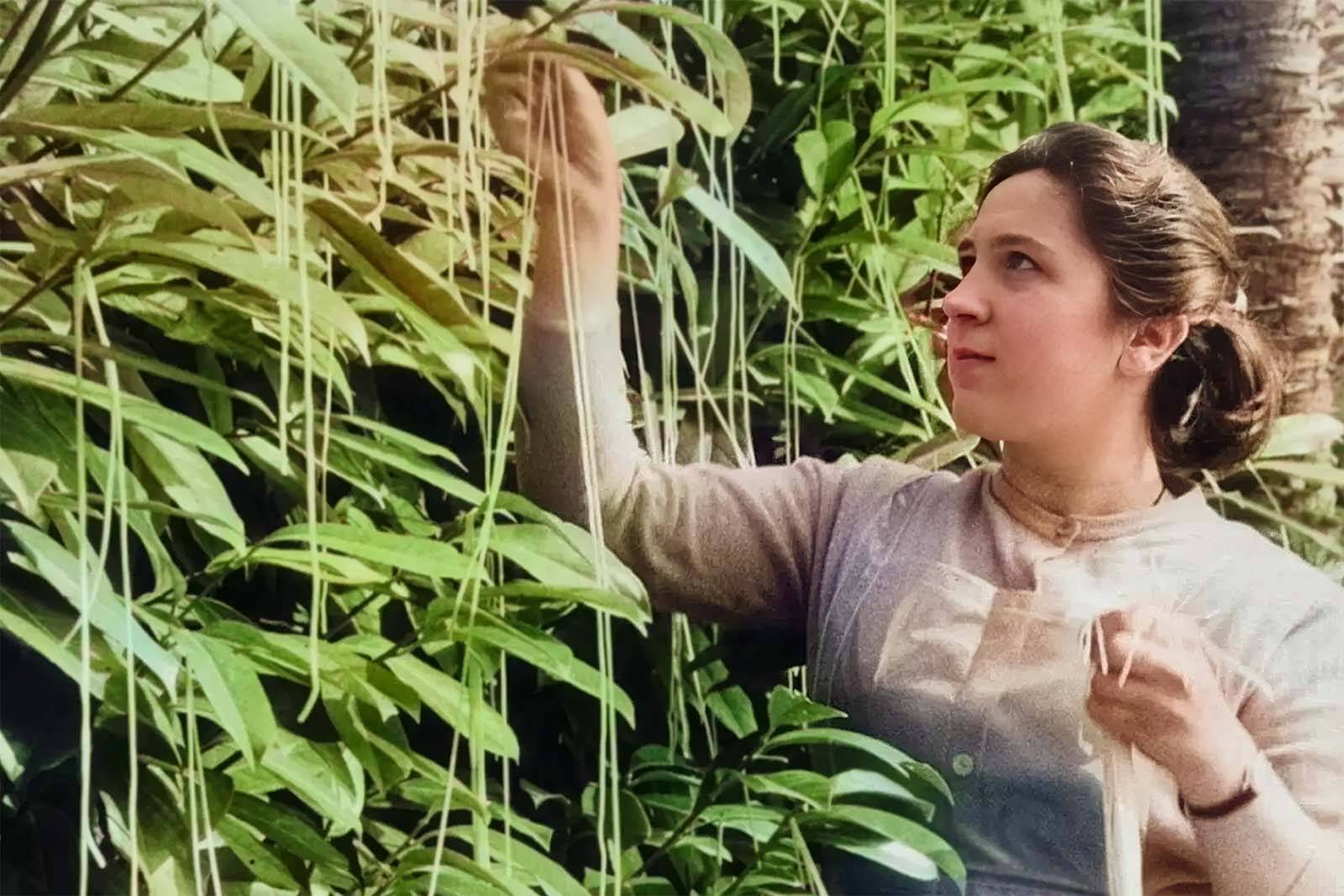 In 1957, the BBC stunned the nation with a prank that redefined April Fools’ mischief. Picture this: a picturesque family in the Swiss countryside delicately plucking strands of spaghetti from a tree.
In 1957, the BBC stunned the nation with a prank that redefined April Fools’ mischief. Picture this: a picturesque family in the Swiss countryside delicately plucking strands of spaghetti from a tree.
Absurd, right? Yet, this whimsical scene aired on the BBC’s Panorama as a seemingly authentic report. Here’s the twist: spaghetti was a culinary mystery to many Brits back then.
So, when they witnessed this “spaghetti harvest,” a light bulb went off—they could grow their own pasta!
Soon after, the BBC found themselves inundated with queries from eager viewers wanting to cultivate their spaghetti trees.
 But as the laughter subsided, chaos erupted. Newspaper headlines blared, debates raged, and the nation found itself split over a simple truth—spaghetti doesn’t grow on trees.
But as the laughter subsided, chaos erupted. Newspaper headlines blared, debates raged, and the nation found itself split over a simple truth—spaghetti doesn’t grow on trees.
It was a masterstroke of trickery, revealing both the power of the media and the unsuspecting gullibility of a populace.
The 1957 spaghetti-tree prank isn’t just a joke—it’s a slice of history that continues to remind us of the power of a well-played April Fools’ gag.
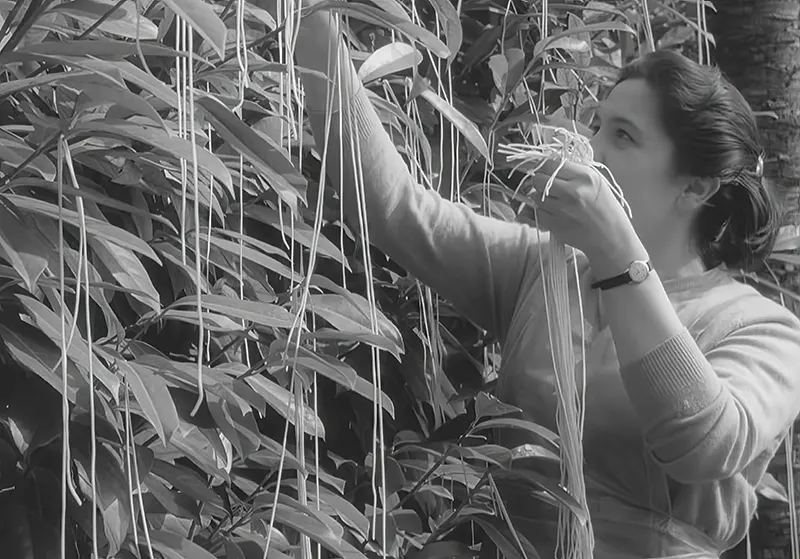 The man largely responsible for the hoax was Austrian-born Panorama cameraman Charles de Jaeger, who liked to play practical jokes.
The man largely responsible for the hoax was Austrian-born Panorama cameraman Charles de Jaeger, who liked to play practical jokes.
As a kid, one of his school teachers used to tell his students for being so stupid that if they were told that spaghetti grew on trees, they would believe it.
De Jaeger always dreamed of pulling off an April Fool’s prank, and in 1957, fate smiled upon him. April Fool’s Day coincided with Panorama’s Monday broadcast, offering the perfect chance.
He made a compelling case, assuring that he could handle the shoot economically while juggling another task in Switzerland. Panorama’s editor, Michael Peacock, gave the nod, approving a tiny £100 budget for the project.
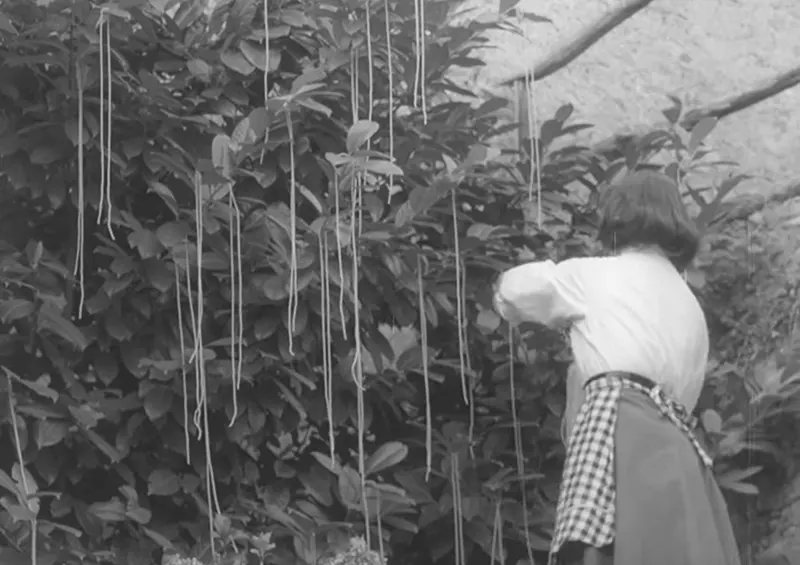 The scene unfolded at a hotel in Castiglione, nestled along Lake Lugano’s tranquil shores. De Jaeger’s plan involved procuring 20 pounds of raw homemade spaghetti.
The scene unfolded at a hotel in Castiglione, nestled along Lake Lugano’s tranquil shores. De Jaeger’s plan involved procuring 20 pounds of raw homemade spaghetti.
He skillfully draped the strands over the branches of laurel trees encircling the lake, creating a captivating illusion of “spaghetti trees.”
Managing uncooked spaghetti wasn’t simple; to prevent it from drying out before filming, he meticulously stored it between damp cloths.
Adding to the spectacle, De Jaeger recruited local women adorned in Swiss national attire. Their role? To playfully “harvest” the spaghetti, filling wicker baskets and strategically laying out the strands under the sun as if they were being “dried.”
 The hoax gained an air of authenticity with the involvement of the announcer, Richard Dimbleby.
The hoax gained an air of authenticity with the involvement of the announcer, Richard Dimbleby.
Dimbleby, a respected veteran broadcaster and the BBC’s inaugural war correspondent, wasn’t known for humor.
Yet, with perfect seriousness, he contributed to the prank.
In his usual deadpan style, Dimbleby confidently reported an upcoming plentiful spaghetti harvest in Switzerland, thanks to the almost complete eradication of the spaghetti tree’s main predator, the “spaghetti weevil”.
 Dimbleby’s voice accompanied footage of joyous Swiss women delicately plucking pasta strands from the tree branches: “After picking, the spaghetti is laid out to dry in the warm Alpine air. Many people are very puzzled by the fact that spaghetti is produced in such uniform lengths. This is the result of many years of patient endeavor by plant breeders who succeeded in producing the perfect spaghetti”.
Dimbleby’s voice accompanied footage of joyous Swiss women delicately plucking pasta strands from the tree branches: “After picking, the spaghetti is laid out to dry in the warm Alpine air. Many people are very puzzled by the fact that spaghetti is produced in such uniform lengths. This is the result of many years of patient endeavor by plant breeders who succeeded in producing the perfect spaghetti”.
The narrator also explained how each year the end of March is a very anxious time for Spaghetti harvesters all over Europe as severe frost can impair the flavor of the spaghetti.
 Although the “farm” was situated in Switzerland, an unexpected place for pasta to grow compared to its origin in Italy, and the segment aired on April Fool’s Day, numerous individuals fell for the ruse.
Although the “farm” was situated in Switzerland, an unexpected place for pasta to grow compared to its origin in Italy, and the segment aired on April Fool’s Day, numerous individuals fell for the ruse.
An estimated eight million people watched the programme on 1 April 1957, and hundreds reached out to the BBC, marveling at the video and inquiring about obtaining their personal spaghetti tree to cultivate noodles at home.
Playing along with the joke, the BBC humorously advised people to “place a sprig of spaghetti in a tin of tomato sauce and hope for the best” as their official response.
 According to the BBC’s Leonard Miall, “Mainly the calls were requests for the BBC to settle family arguments: the husband knew it must be true that spaghetti grew on a bush because Richard Dimbleby had said so, and the wife knew it was made with flour and water, but neither could convince the other.”
According to the BBC’s Leonard Miall, “Mainly the calls were requests for the BBC to settle family arguments: the husband knew it must be true that spaghetti grew on a bush because Richard Dimbleby had said so, and the wife knew it was made with flour and water, but neither could convince the other.”
Even the BBC’s director-general, Sir Ian Jacob, initially fell for the prank. He and his wife attempted to verify the information by consulting the Encyclopedia Britannica, only to find that the encyclopedia at that time didn’t feature any mention of spaghetti, leading to a moment of realization.
“The spaghetti harvest was a splendid idea, beautifully shot and organized,” he later wrote to De Jaeger. “This item has caused a great deal of delight, one way and another.”
 To defend the unsuspecting British viewers, it’s important to highlight that spaghetti and pasta, in general, didn’t gain popularity in the United Kingdom until much later in the 20th century.
To defend the unsuspecting British viewers, it’s important to highlight that spaghetti and pasta, in general, didn’t gain popularity in the United Kingdom until much later in the 20th century.
In those days, most people in the UK bought their spaghetti in tins from stores.
Due to this common practice, there was limited knowledge about its production or origins, resulting in a great many viewers being duped by the segment.
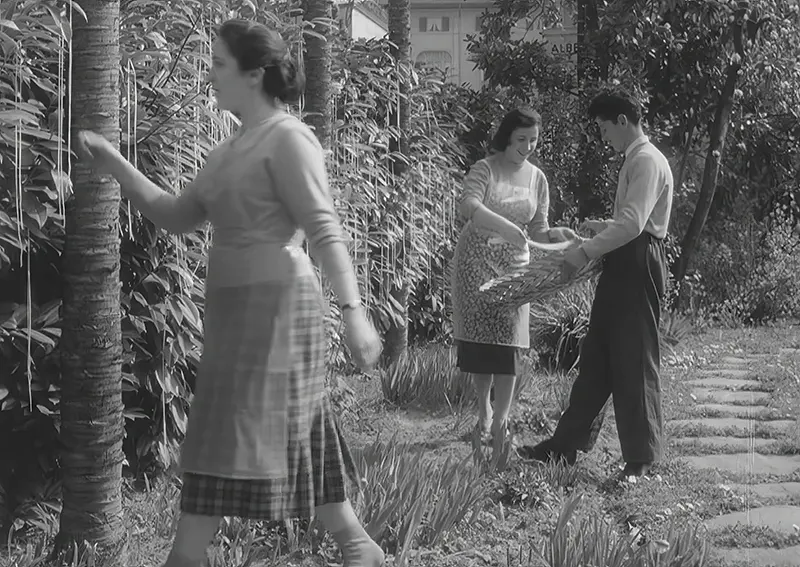 The BBC faced criticism from those displeased by the network’s prank, igniting public discourse about media integrity.
The BBC faced criticism from those displeased by the network’s prank, igniting public discourse about media integrity.
Some heavily criticized the broadcasters for deceiving viewers, raising false expectations about cultivating spaghetti.
David Wheeler, the program’s producer, showed no remorse for his involvement in the spaghetti frenzy. During a 2004 interview with the BBC, he expressed, “I have no regrets about it at all.”
He defended the prank, stating, “I think it was a good idea for people to be aware they couldn’t believe everything they saw on the television,” emphasizing the importance of adopting a slightly critical perspective towards televised content.


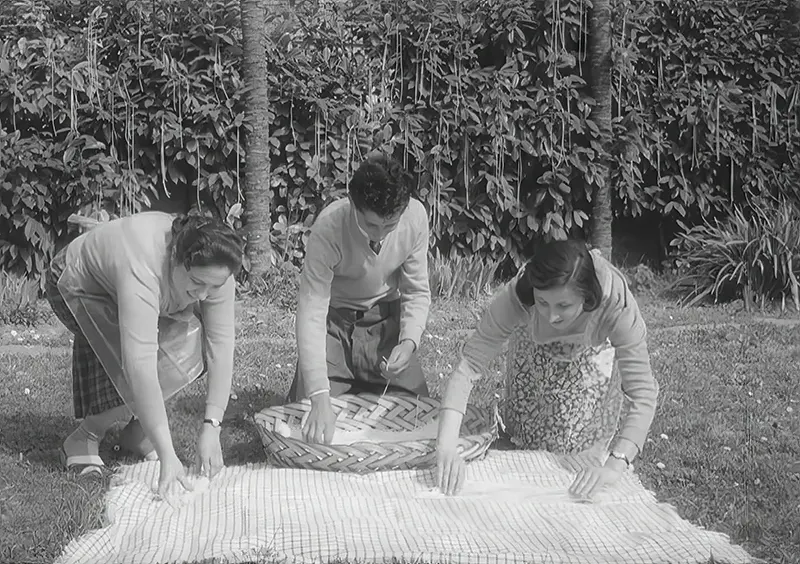
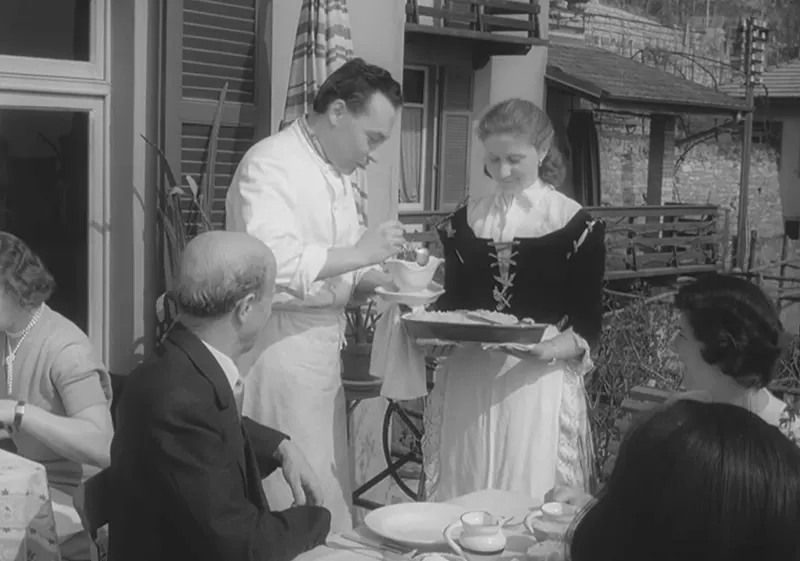


The original Spaghetti April Fool’s video aired by BBC in 1957
(Photo credit: BBC Archives / Photos enhanced and improved by RHP, used with permission).